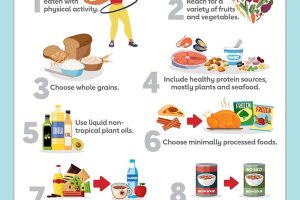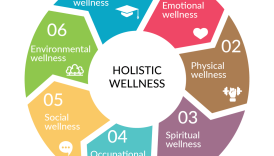Elevate Your Heart Health: Strategies for a Thriving Life

Importance of Heart Health
Maintaining heart health is crucial for a long, vibrant life. The heart, often referred to as the body’s engine, pumps blood throughout the entire system, delivering oxygen and nutrients that keep us going.
- Elevate Your Heart Health: Strategies for a Thriving Life
- Importance of Heart Health
- Impact on Overall Well-being
- Understanding Heart Health
- Common Cardiovascular Conditions
- Risk Factors for Heart Disease
- Healthy Eating for a Healthy Heart
- Benefits of a Heart-Healthy Diet
- Foods to Include and Avoid
- Exercise for a Strong Heart
- Importance of Physical Activity
- Best Workouts for Heart Health
- Stress Management for Heart Wellness
- Connection Between Stress and Heart Disease
- Relaxation Techniques to Reduce Stress
- Quality Sleep for a Healthy Heart
- Importance of Adequate Sleep
- Tips for Better Sleep Hygiene
- Maintaining a Healthy Weight
- Impact of Weight on Heart Health
- Strategies for Weight Management
- Regular Health Check-ups
- Importance of Monitoring Heart Health
- Key Medical Tests for Heart Disease Prevention
- Avoiding Unhealthy Habits
- Dangers of Smoking and Excessive Alcohol Consumption
- Tips for Quitting Smoking and Limiting Alcohol Intake
- Social Connections and Heart Health
- Benefits of Strong Social Networks
- Ways to Foster Meaningful Relationships
- Vital Role: A healthy heart ensures that all organs function optimally.
- Preventing Disease: By prioritizing heart health, one can significantly reduce the risk of heart disease, stroke, and other serious complications.
Imagine waking up in the morning feeling full of energy rather than fatigued. This vibrant feeling can stem from taking care of heart health!
Impact on Overall Well-being
A healthy heart not only prolongs life but also enhances quality of life. When the heart is functioning well, individuals tend to feel:
- More Energized: The flow of oxygen allows for increased stamina and reduced fatigue.
- Emotionally Stable: Good heart health can lead to emotional well-being, decreasing anxiety and depression.
Being proactive about heart health can transform daily experiences, making even the simplest moments more joyful. After all, a strong heart supports a happier, healthier you!
Understanding Heart Health
Common Cardiovascular Conditions
Understanding heart health begins with recognizing common cardiovascular conditions that can affect anyone, regardless of age or lifestyle. For instance, many people may be familiar with:
- Coronary Artery Disease (CAD): This occurs when arteries become narrowed or blocked, impairing blood flow.
- Heart Failure: A condition where the heart can’t pump enough blood to meet the body’s needs.
- Arrhythmias: Irregular heartbeats that can lead to various heart-related complications.
These conditions might sound daunting, but being informed is the first step toward prevention.
Risk Factors for Heart Disease
Identifying risk factors is essential in combatting heart disease. Some common contributors include:
- High Blood Pressure: Often called a “silent killer,” it can damage blood vessels over time.
- Unhealthy Diet: A diet high in saturated fats and sugars increases strain on the heart.
- Lack of Physical Activity: Sedentary lifestyles contribute significantly to heart health issues.
One personal experience illustrates this well: a friend of mine transformed her health by swapping processed snacks for fresh fruits and vegetables, feeling more energetic and joyous in her daily life. Recognizing these risks allows individuals to make informed, proactive changes toward better heart health.
Healthy Eating for a Healthy Heart
Benefits of a Heart-Healthy Diet
Transitioning to a heart-healthy diet can be transformative. Emphasizing nutritious foods not only nourishes the body but also enhances overall heart function. Some benefits include:
- Reduced Cholesterol Levels: Incorporating more fiber can help lower bad cholesterol.
- Improved Energy Levels: A balanced diet can provide the sustained energy that keeps fatigue at bay.
- Better Mood Stability: Proper nutrition supports mental health and emotional well-being.
A friend of mine started incorporating leafy greens and whole grains into her meals and noticed a significant boost in her energy, helping her power through her busy days!
Foods to Include and Avoid
Knowing what foods to prioritize and which to limit is crucial: Foods to Include:
- Fruits and Vegetables: Rich in antioxidants and vitamins.
- Whole Grains: Oats, quinoa, and brown rice can lower cholesterol.
- Healthy Fats: Sources like avocados, nuts, and olive oil promote heart health.
Foods to Avoid:
- Processed Foods: High in sugar and unhealthy fats.
- Red and Processed Meats: Linked to higher heart disease risk.
- Sugary Beverages: Can lead to obesity and increased blood pressure.
Making these dietary adjustments can significantly contribute to a healthier heart and a more vibrant lifestyle.
Exercise for a Strong Heart
Importance of Physical Activity
Following a heart-healthy diet, regular physical activity is vital for maintaining a robust heart. Exercise doesn’t just help in burning calories; it’s a powerful ally in promoting heart health. Engaging in physical activity can:
- Lower Blood Pressure: Regular workouts can help manage hypertension effectively.
- Reduce Cholesterol Levels: Physical activity can raise good cholesterol (HDL) and lower bad cholesterol (LDL).
- Enhance Mood: Exercise releases endorphins, which can significantly elevate mood and reduce stress.
A personal story I recall is of a colleague who took up jogging. Not only did he shed a few pounds, but his energy levels soared, and he felt more focused at work!
Best Workouts for Heart Health
Incorporating a mix of activities can greatly benefit heart health. Some excellent workouts include:
- Aerobic Exercises: Activities like swimming, cycling, and walking elevate heart rates and improve cardiovascular endurance.
- Strength Training: Lifting weights builds muscle and boosts metabolism, supporting heart health.
- High-Intensity Interval Training (HIIT): Short bursts of intense activity followed by rest can be particularly effective for improving heart function.
No matter the choice, consistency is key. Finding an enjoyable activity makes it easier to stick with a routine and feel great while doing it!
Stress Management for Heart Wellness
Connection Between Stress and Heart Disease
As we continue on the journey toward heart health, it’s essential to consider the role of stress management. Research has shown a direct connection between stress and heart disease. When someone experiences high stress levels, their body reacts by releasing hormones that can lead to:
- Increased Heart Rate: This can put extra strain on the heart.
- Elevated Blood Pressure: Chronic stress can lead to hypertension, a major risk factor for heart problems.
- Unhealthy Coping Mechanisms: Some may resort to overeating or smoking, both harmful to heart health.
I remember a friend who faced immense work pressure; her anxiety increased her heart rate. Once she started incorporating stress management techniques, she noticed a drop in anxiety levels and felt more in control.
Relaxation Techniques to Reduce Stress
Implementing relaxation techniques can help combat stress effectively. Here are a few tried-and-true methods:
- Deep Breathing Exercises: Taking a few minutes to breathe deeply can lower stress levels and improve circulation.
- Meditation: Regular meditation practices can help clear the mind and promote relaxation.
- Yoga: This combines physical activity with relaxation, benefiting both body and mind.
By dedicating a little time each day to these practices, individuals can significantly reduce their stress levels and, in turn, boost their heart health. Embracing these techniques isn’t just beneficial; it can inspire a more balanced, healthier lifestyle!
Quality Sleep for a Healthy Heart
Importance of Adequate Sleep
Transitioning from stress management, we can’t overlook another crucial aspect of heart health – quality sleep. Adequate sleep is fundamental because it allows the heart to recover and rejuvenate. It has been well-documented that insufficient sleep can lead to:
- Increased Blood Pressure: Lack of sleep can cause fluctuations in blood pressure levels, putting stress on the heart.
- Higher Risk of Heart Disease: Studies have shown that sleep deprivation is linked to a greater risk of heart-related issues.
- Impaired Glucose Metabolism: Poor sleep can affect how the body processes sugar, increasing the risk of diabetes.
A friend of mine once struggled with insomnia, which not only impacted her mood but also her energy levels. Once she prioritized sleep, she felt more vibrant and focused throughout the day.
Tips for Better Sleep Hygiene
Improving sleep hygiene can significantly enhance sleep quality. Here are some practical tips:
- Maintain a Consistent Sleep Schedule: Going to bed and waking up at the same time helps regulate the body’s internal clock.
- Create a Relaxing bedtime routine: Engaging in calming activities like reading or taking a warm bath can signal the body it’s time to wind down.
- Limit Screen Time: Reducing exposure to screens at least an hour before bed can help improve melatonin production and prepare the body for sleep.
Implementing these strategies can lead to restful nights and better days ahead, fostering a healthier heart and overall well-being!
Maintaining a Healthy Weight
Impact of Weight on Heart Health
Continuing the discussion on heart wellness, one cannot underestimate the impact of weight on overall cardiovascular health. Carrying excess weight can significantly raise the risk of heart disease due to factors such as:
- Increased Blood Pressure: Higher body weight often leads to elevated blood pressure, straining the heart.
- Higher Cholesterol Levels: Excess weight can disrupt balance in the body, raising bad cholesterol (LDL) levels.
- Insulin Resistance: This can lead to type 2 diabetes, which is a strong risk factor for heart disease.
A neighbor of mine decided to shed some pounds by tweaking his diet and exercise routines. He discovered that losing just 10% of his body weight made a noticeable difference in his energy levels and heart health.
Strategies for Weight Management
Managing and maintaining a healthy weight can be achievable with a few strategies:
- Set Realistic Goals: Aim for gradual weight loss (1-2 pounds per week), which is more sustainable.
- Incorporate Regular Physical Activity: Find enjoyable exercises—whether it’s biking, dancing, or brisk walking—to make it easier to stick to a routine.
- Monitor Food Intake: Keeping a food diary can help identify eating patterns and make mindful choices.
By focusing on these strategies, anyone can take control of their weight and, subsequently, their heart health, paving the way for a more fulfilling life!
Regular Health Check-ups
Importance of Monitoring Heart Health
As we shift our focus to another vital aspect of heart health, it’s essential to highlight the importance of regular health check-ups. Staying proactive about heart health can make all the difference, allowing individuals to catch potential issues early. Regular check-ups can help:
- Identify Risk Factors: Monitoring blood pressure and cholesterol levels can reveal underlying risks.
- Track Progress: For those already managing heart conditions, regular visits enable adjustments in treatment plans.
- Provide Peace of Mind: Knowing your heart health status can alleviate anxiety and promote a more active lifestyle.
I once met someone who overlooked their annual check-up, only to discover high cholesterol levels during a routine test. Their ability to manage it early made all the difference.
Key Medical Tests for Heart Disease Prevention
Several key medical tests should be included in routine health assessments for heart disease prevention:
- Cholesterol Screening: A blood test can provide important insights into heart health, measuring both LDL and HDL levels.
- Blood Pressure Monitoring: Regular assessments help gauge hypertension risks.
- Electrocardiogram (ECG): This test checks for heart abnormalities and can guide further evaluation if needed.
By incorporating these tests into a regular health routine, individuals can take significant steps toward maintaining a healthy heart and ensuring their overall well-being!
Avoiding Unhealthy Habits
Dangers of Smoking and Excessive Alcohol Consumption
As we wrap up our discussion on maintaining heart health, it’s crucial to address the unhealthy habits that can undermine all the good work. Smoking and excessive alcohol consumption are two major culprits that can severely impact heart health. The dangers include:
- Increased Heart Rate: Smoking raises heart rates, putting added strain on the heart.
- High Blood Pressure: Both smoking and heavy drinking contribute to elevated blood pressure levels.
- Risk of Heart Disease: Smoking is directly linked to numerous heart conditions, while excessive alcohol can lead to cardiomyopathy—a serious type of heart damage.
I had a coworker who quit smoking, and within weeks, she noticed her breath was easier, and she felt more energetic.
Tips for Quitting Smoking and Limiting Alcohol Intake
If you’re looking to turn over a new leaf, here are some effective tips:
- Set Clear Goals: Write down your reasons for quitting smoking or limiting alcohol.
- Seek Support: Whether it’s family, friends, or support groups, having a network can make the journey smoother.
- Find Alternatives: Replace smoking with healthier habits like chewing gum or going for a walk; substitute alcohol with sparkling water or herbal tea during social outings.
Making these positive lifestyle changes can significantly enhance heart health and set the stage for a longer, healthier life. Each small step creates momentum toward overall well-being!
Social Connections and Heart Health
Benefits of Strong Social Networks
As we delve into the less tangible aspects of heart health, let’s talk about the power of social connections. Strong social networks can have a profound impact on overall well-being and heart health. Benefits include:
- Reduced Stress Levels: Positive relationships act as a buffer to life’s stresses, lowering cortisol levels, which can be detrimental to heart health.
- Encouragement to Stay Active: Friends and family can motivate each other to engage in physical activities together, keeping fitness levels up.
- Enhanced Emotional Support: Having a reliable support system can promote mental health, alleviating anxiety and depression—two factors that can strain the heart.
A friend of mine started a walking group with neighbors, and not only did they exercise regularly, but their bonds deepened, resulting in a more joyful perspective on life.
Ways to Foster Meaningful Relationships
Building strong social connections doesn’t have to be complicated. Here are some simple ways to foster meaningful relationships:
- Engage in Shared Activities: Whether it’s joining a club or participating in town events, shared experiences can strengthen bonds.
- Make Time for Regular Check-ins: Scheduling catch-ups, even if it’s virtually, helps maintain connections.
- Be Open and Vulnerable: Sharing feelings and being authentic can deepen trust and closeness.
Investing in relationships not only nurtures social bonds but also contributes positively to heart health. Ultimately, surrounding oneself with supportive individuals creates a fulfilling, healthier life!





